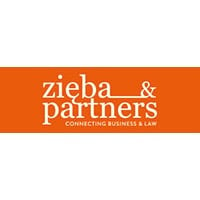

Legal counsel CE | Fox Network Group Poland (integrating The Walt Disney Company CEE)




Rafał Gąsiorowski
Legal counsel CE | Fox Network Group Poland (integrating The Walt Disney Company CEE)
In today’s dynamic business environment “soft skills” and personal attributes are crucial. Saying they are equally important as technical legal skills would not be enough. Facing multi-channel exposure, soft skills decide whether a legal counsel is effective in his job. There are a lot of lawyers, who poses technical legal skills; however, successful legal counsel become those who master communication skills, are empathic and assertive. They are able to manage and channel their own emotions as well as those of their supervisors and internal clients. In the modern dynamic business environment this is the key to becoming a part of the team, both internationally and
locally.
Obviously a candidate has to have technical legal skills, these are basic requirements, however those can be adjusted and mastered throughout our collaboration. What I’m really looking for are includes the: ability to form opinions, communication skills, empathy and assertiveness. These are necessary and important because we act in a complex environment, where one has to be open and attentive to internal and external signals.
I would advise them to notice, understand and respect two dimensions of collaboration that will help them be successful in Poland: the technical and the social. As regards the technical, our international colleagues should always bear in mind there is a strong and stable legal system and culture in Poland. Poland is an EU member state, yet our laws may differ from those in other jurisdictions and they should be followed accordingly. I have seen my international colleagues trying to apply foreign legal solutions or constructions, which resulted in failed negotiations or invalid contracts. As regards the social one please always consider the cross-cultural factor. Poles are very relational and emotions have great meaning for them. I would dare to say Polish personality lies somewhere between Italian openness, flexibility and cordiality and German attention to details, respect and formality. At the same time you should not treat Poles as Italians or Germans.
We are always interested in working with trusted, open minded and business-oriented external lawyers. Being technically skilled and possessing a vast legal knowledge is not enough. We value attorneys understanding our business, being able to comply with and anticipate our business’ needs and who are flexible. At the same time the delivered product has to be of top quality.
FOCUS ON… THE ROLE
Becoming a sapper: the role of a modern in-house lawyer
In today’s dynamic business reality the role of an in-house lawyer has greatly evolved. Pure legal knowledge is necessary but is not enough; companies appreciate and expect their legal advisors to be strategic partners, not only risk spotters. What does this mean in practice and what are the essential skills to be successful in such role?
An interesting metaphor illustrating the change in perception of the role of legal counsel comes from military terminology. Both attitudes; traditional general advisor and modern business enabler and the functions assigned to them may be compared to the roles of the guard and sapper in the army. The guard will be careful, standing firm in his position and making sure that the unit does not make any unwanted movement. He might say “know it is dangerous; therefore, I tell you not to go there”. In the business world, such an approach would be represented by a lawyer who notes the flaws and risks in a particular endeavour or strategy, names them and advises against or prohibits applying them. Such attitude is cementing the impression of being “the smartest in the room” or the “department of no”.
Sapper, in turn, will go in front of the unit, laying and clearing landmines, repairing roads and building bridges so that the army can pass. Such an in-house lawyer will support colleagues identifying possible difficulties at the stage of creating a product or business strategy, managing them and providing alternative solutions or legal loopholes around a certain problem, based on understanding of the business and law. He will build relationships and protect the business’ reputation. He will prove to be an indispensable part of the team, not an outsider.
While for the guard it was enough to master legal knowledge and legal drafting skills, the sapper will need additional tools. These are empathy – to understand and appreciate the goals, emotions and needs of internal clients, to feel a part of the team, to strive to achieve a common goal; assertiveness and communication skills to
accurately convey feedback and advice, as well as effectively conduct negotiations. At the same time, the in-house lawyer has to understand and to apply the corporate-speak nuances the way his business clients do to be certain that both parties are truly communicating.
Being assertive is also necessary to sustain the professional balance between the “yes culture” and the “department of no”. The in-house lawyer cannot take a cavalier approach to every task or give in to pressure to support a business conclusion of “yes” and ignore existing risks. In some instances the answer has to be “no”; yet, again often it might be “not yet, but…”, “no, unless…” or at least softened to “no, not that way”.
The transition from a guard position to a sapper position involves leaving one’s comfort zone; safe but isolated. In a dynamic world, which offers new support services and technological tools, it is a necessity. Making a decision and taking a step in the right direction, although uncomfortable at the beginning, brings a lot of satisfaction, recognition and changes position to an advisor and strategist. I know this from experience, as I decided to take this step myself.